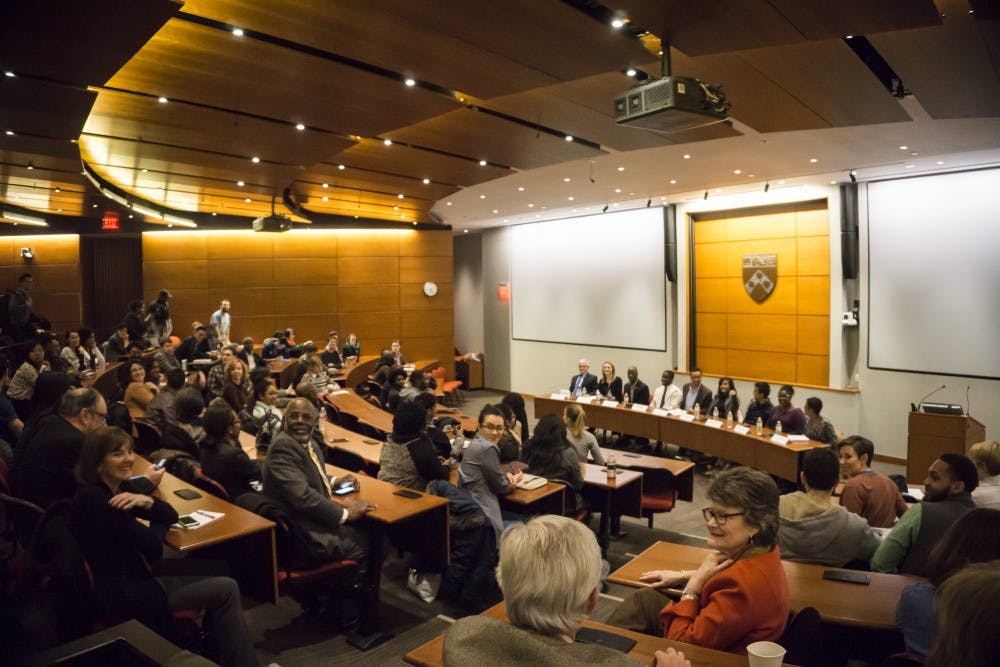
Panelists met Wednesday night to address the lack of discussion about uncomfortable classroom experiences involving identity, religion, and race.
“Language can and does cause real harm to individuals and groups,” Provost Vincent Price said as he opened Wednesday’s panel discussion on classroom culture.
A group of Penn faculty and students came together to discuss classroom environments on campus and how perceived insensitivities regarding race, religion and sexual orientation have the potential to create uncomfortable learning environments. During the conversation — co-sponsored by the Office of the Provost’s Campaign for Community and the Faculty Senate — panelists discussed some of their uncomfortable classroom experiences.
Most of these experiences dealt with comments regarding race that students and faculty perceived to be inconsiderate. Several panelists felt demeaned by remarks that they said had unintended consequences.
Confronting these problematic experiences in the classroom can be especially difficult for students because they are often intimidated by the authority of faculty figures, some panelists said.
“I have students who come to me and say, ‘This happened to me in a class, or this colleague of mine said this, that or the other to me, how can I handle that?’” sociology and Africana studies professor Camille Charles said. “Sometimes there are ways to [navigate these situations] and sometimes there aren’t, but I think that if you’re going to try to maintain that relationship and still not become so jaded as to believe that everybody is going to be like that person, that we have to have strategies involving advocates.”
Liberal and Professional Studies graduate student Persephone Tan critiqued the lack of diversity on the panel during the discussion.
“I noticed probably within the first five or 10 minutes of this event that there was no Asian person on the panel,” she said. “I wanted to have you guys think about ...that there is a huge Asian population at Penn and to have the organizers of the committee or future events be more conscious of obviously including more different kinds of people.”
Additionally several panel members addressed the lack of conservative faculty members at the discussion who they felt had opposing beliefs that needed to be brought to the conversation.
Panel members talked about how they believed Penn faculty and Penn as an institution could address these issues. Graduate School of Education professor Shaun Harper suggested that one way to address these conversations about race and identity is to provide “remediation” for faculty on improving cultural understanding.
Wharton senior Rachel added that modules like those used for freshman pre-orientation and the more recent Thrive at Penn module could also work for helping faculty identify micro-aggressions and their own implicit biases.
The panelists agreed that diverse faculties are the best way to ensure that diversity of experience and racial equity flourish at universities.
“It isn’t easy. I just would encourage you to keep trying, because we really need you,” Charles said, speaking to minority students interested in academia. “We really need a more diverse faculty across disciplines, across professions, across schools.”
Women’s Center Director Felicity Paxton said anyone can become more thoughtful by trying to understand other points of view.
“You don’t just become a good person by intending to be one. You become one by being thoughtful and raising your own level of consciousness,” she said.
The Daily Pennsylvanian is an independent, student-run newspaper. Please consider making a donation to support the coverage that shapes the University. Your generosity ensures a future of strong journalism at Penn.
DonatePlease note All comments are eligible for publication in The Daily Pennsylvanian.








